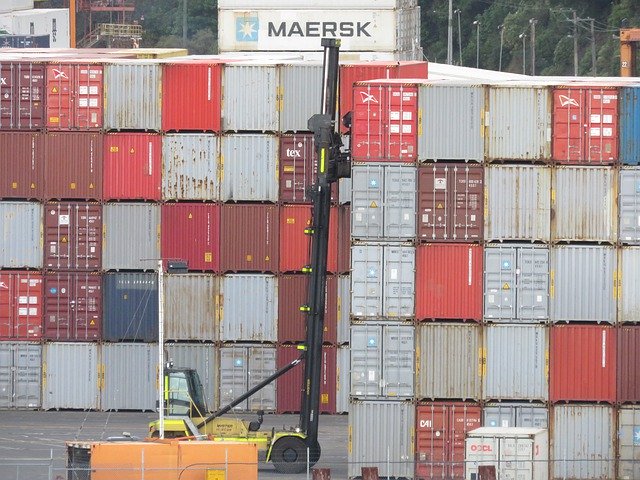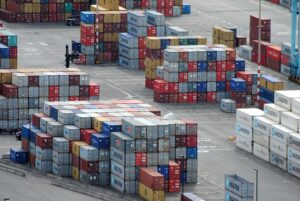
-
PH customs modernization project has a total cost of $104.38 million—$88.28 million to be funded by a WB loan
-
Project to improve PH customs administration through streamlining, automation, and development of a world-class customs processing system
-
Stakeholders to directly benefit through reduced transaction costs and enhanced predictability and transparency of clearance process
-
WB said PH growth potential has been constrained by inefficiencies in trade facilitation and customs administration.
-
Project involves three components: modernization of customs operations, organizational development, and project management and implementation support

Three years since it was first proposed, the Philippines Customs Modernization Project is ready for rollout with the World Bank (WB) approving a US$88 million loan to modernize operations of the Philippine Bureau of Customs (BOC).
The Washington-based lender’s Board of Executive—Directors approved the loan for the Philippines Customs Modernization Project on October 27. The project was first introduced by WB in 2017, and approved by the National Economic and Development Authority Investment Coordination Committee-Cabinet Committee on March 6, 2020.
READ: WB designing $200M modernization plan for PH customs ; $97.8M BOC modernization program gets green light
The project has a total cost of $104.38 million, the balance of which will be funded by the Philippine government. The original cost was higher at $200 million.
BOC, an attached agency of the Department of Finance, will be responsible for project execution and ensuring project development objectives are met.
BOC earlier said it will establish a project management unit with the overall responsibility for project implementation. A special bids and awards committee will also be formed for the procurement of the different project components.
The project is expected to improve the country’s customs administration through streamlining, automation, and development of a world-class customs processing system (CPS), WB said in a statement.
Traders, exporters, importers, port operators, shipping companies, and transport providers—many of them small and medium enterprises employing a lot of workers—are expected to directly benefit through reduced transaction costs and enhanced predictability and transparency of the clearance process.
“Improved efficiency at the Bureau of Customs will reduce trade costs and support Philippines’ competitiveness,” said WB country director for Brunei, Malaysia, Thailand, and Philippines Ndiamé Diop.
“Automation will reduce face-to-face interactions and delays, and increase accountability, all of which strengthen efficiency and improve the business environment,” Diop added.
With the modern customs processing system or CPS in particular, important processes like trade management and registration, cargo inspection, duty payment, and clearance and release will be integrated into a seamless online system.
The CPS will likewise improve adherence to international standards and conventions on customs processing, provide audit trail for transactions, and allow for greater transparency and less opportunity for corruption.
Growth potential constrained
Prior to COVID-19 pandemic, the Philippines was one of the most dynamic economies in East Asia and the Pacific Region. But WB said its growth potential has been constrained by inefficiencies in trade facilitation and customs administration.
“For example, a container in the Philippines takes 120 hours to clear customs and associated inspection procedures, much higher than in neighboring Vietnam (56 hours), Thailand (50 hours) or Malaysia (36 hours). This provides a competitive advantage to firms in these countries vis-à-vis their Filipino counterparts,” WB explained.
It added that the “unfavorable business environment for firms in the Philippines reduces the incentive to engage in export, thereby foregoing the opportunity to expand markets and create more jobs in the Philippines.”
Based on WB’s enterprise survey data, domestic firms in the Philippines export only 3.5% of their output, compared to 26% of domestic companies in Malaysia and Thailand.
As for foreign firms, 78.7% of them in Vietnam, 84% in Malaysia, and 93% in Thailand directly or indirectly export, compared to only 25.5% in the Philippines.
“Relatively poor trade facilitation performance at the country’s borders can partly be attributed to outdated infrastructure and business practices,” WB noted.
It said modernization will also accelerate process reforms by BOC. These include efforts to digitalize paper-based systems, and improve critical capabilities such as risk management, intelligence, and post clearance audit, and other transaction processes that are vulnerable to corruption.
Three components
The project involves three components, according to the project’s datasheet dated February 2020 available at the WB website.
The first component will modernize customs operations by improving BOC’s core CPS, related technical infrastructure, and internal capacity to enable the operation of a sophisticated information and communications technology.
This component will also enhance BOC’s operational effectiveness, integrity, accountability, and organizational performance. It will also strengthen fraud- and contraband-detection capabilities to eliminate waiting time for scanning, streamline overall inspection processes, reduce time to release legitimate trade, modernize BOC inspection processes, and improve trader perception of BOC business processes.
The second component, organizational development, will support BOC’s move to modernize customs administration by implementing, through the CPS, updated customs procedures that will create new responsibilities and demands for BOC’s workforce.
The third component, project management and implementation support, creates a project management and quality assurance consultancy that will support BOC during project implementation. – Roumina Pablo




